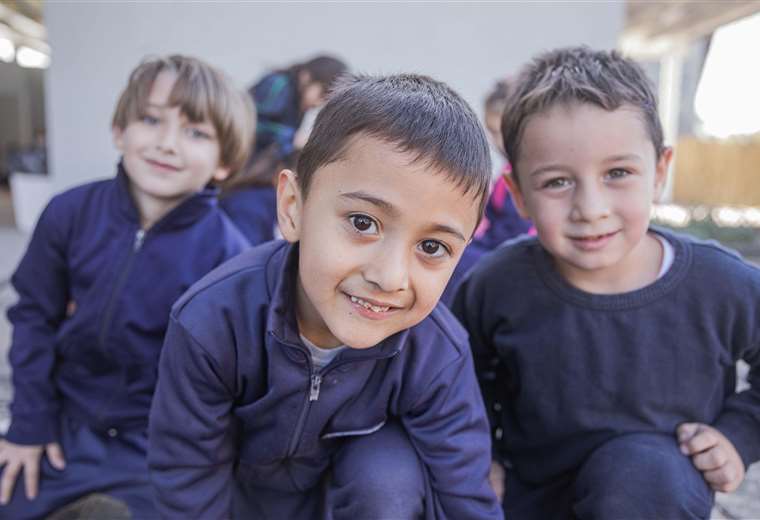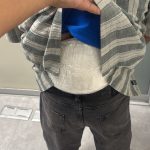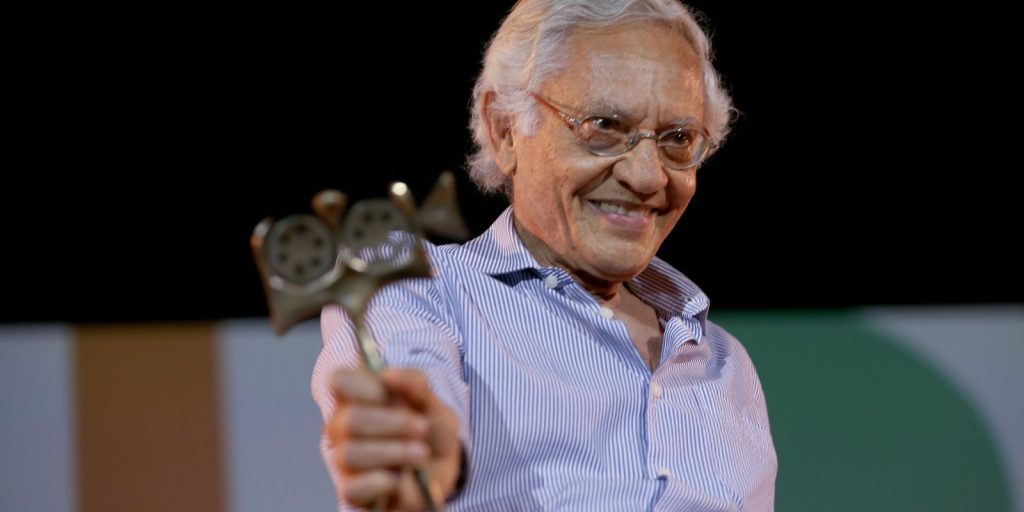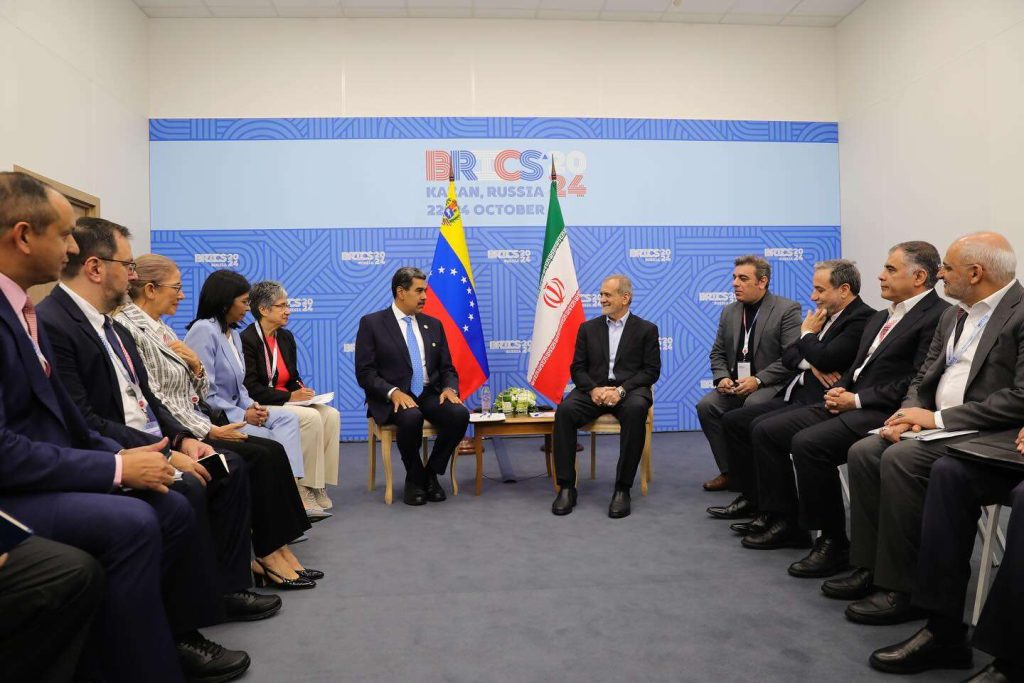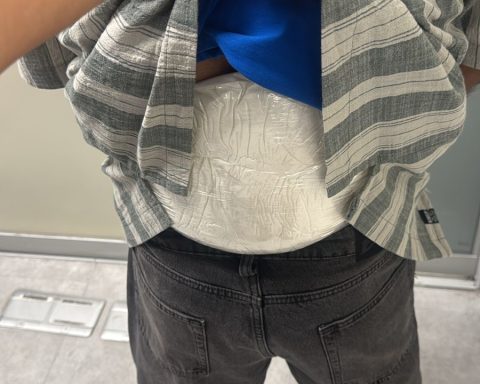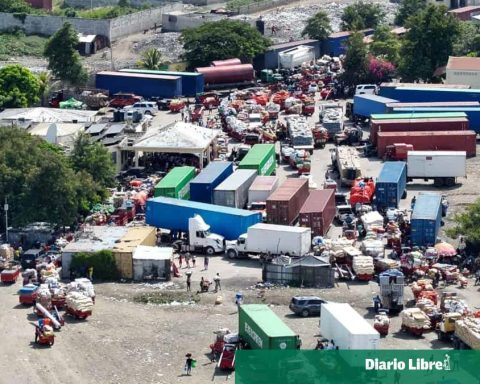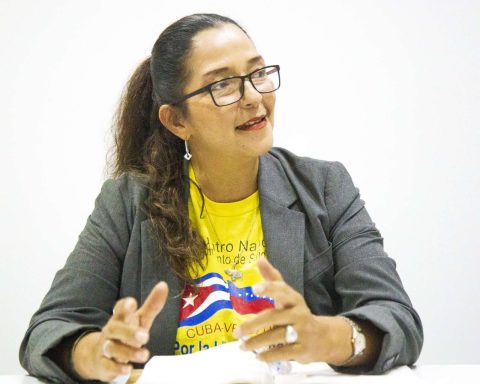October 24, 2024, 12:40 PM
October 24, 2024, 12:40 PM
It is located in a humble neighborhood in one of the least resourced areas of the province of Buenos Aires, but the modest María de Guadalupe school has just been chosen as one of the five best in the world.
The privately managed institute, which educates about 700 children and adolescents – most of them from very low-income families – in the Las Tunas neighborhood, belonging to the municipality of Tigre, won the award World’s Best School Prizesin the category of “Collaboration with the community”.
This is an award given by the British educational platform T4 Education since 2022, and grants prizes of US$10,000 to each of the educational institutions worldwide distinguished in five categories (environmental action, innovation, overcoming adversity and promoting lives healthy are the others).
The winners were chosen by a jury composed of prominent leaders from around the world, including academics, educators, NGOs, social entrepreneurs, government, civil society and the private sector.
Mary of Guadalupe It is the only school in Latin America which was awarded in this edition, and is also the first from Argentina to be nominated.
Luis Arocha, the director of the school, told BBC Mundo that it was created just 12 years ago as part of a solidarity action, when some people who offered school support in the Las Tunas neighborhood, with an organization of the Catholic Church, decided to create a foundation to form a school there.
“The social worker María Paz Mendizabal and the businessman Roberto Souviron, founder of the travel agency on-line Taking off, they set up the foundation and in 2012 they opened the school with the idea that it would have particular characteristics in terms of educational results and efficiency,” says Arocha.
When it opened, María de Guadalupe had barely 150 students and only offered the first three grades of primary school. By 2016, the secondary school was already inaugurated and currently educates children from 4 years old.
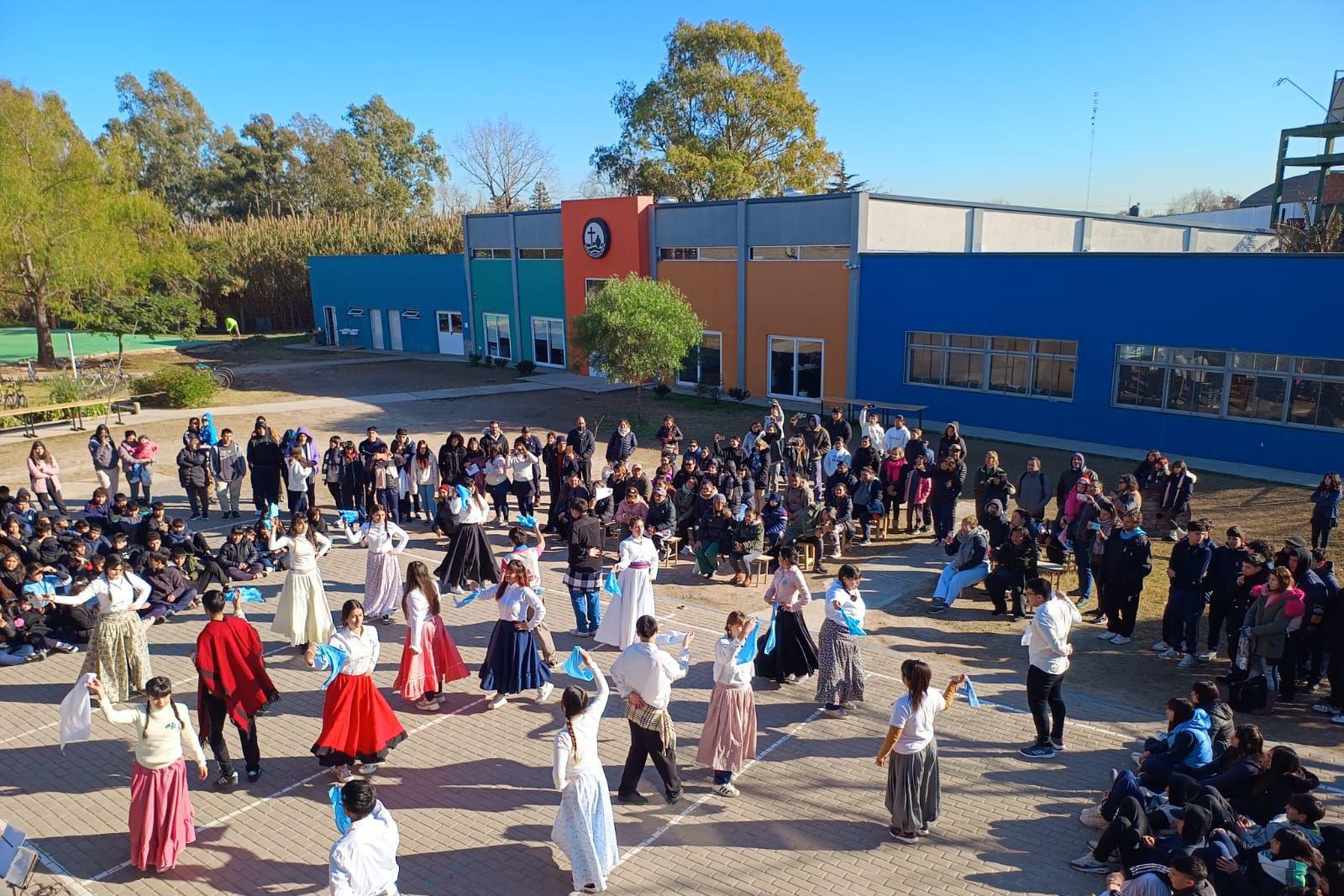
T4 Education highlighted that the school was awarded because “empowers students from contexts of social vulnerability with a comprehensive model that combines academic learning with professional development.
Here we tell you in more detail what the keys to the success of this school are and why it stands out at a time when Argentine education – in the past one of the most admired in the region – is going through a serious crisis.
Inclusion
One of the most notable aspects of María de Guadalupe is its innovative inclusion model.
The school team not only educates. It also helps humble families overcome the obstacles that make it difficult for them to send their children to school.
In a country where poverty reaches almost 53% of the population – including 2 out of every 3 children – one of those obstacles is economic.
“The school receives a state subsidy from the province of Buenos Aires, which covers 60% of the budget. Another 30% is covered by sponsors and donors who help the foundation. Families only have to pay 10%,” explains Arocha. .
Currently, this means a monthly fee of about US$36 for a full day of primary school, a figure well below other private schools.
“Many of the families in our school subsist with informal jobs and there are months when they do not even manage to pay that amount. In those cases, the granting of a scholarship is evaluated,” says the director.
But lack of money is not the only obstacle for children to study.
The school also faces other challenges, such as domestic violence or the housing problems faced by many of its students.
There is key interdisciplinary team of social workers, psychologists and psychopedagogues who assist children.
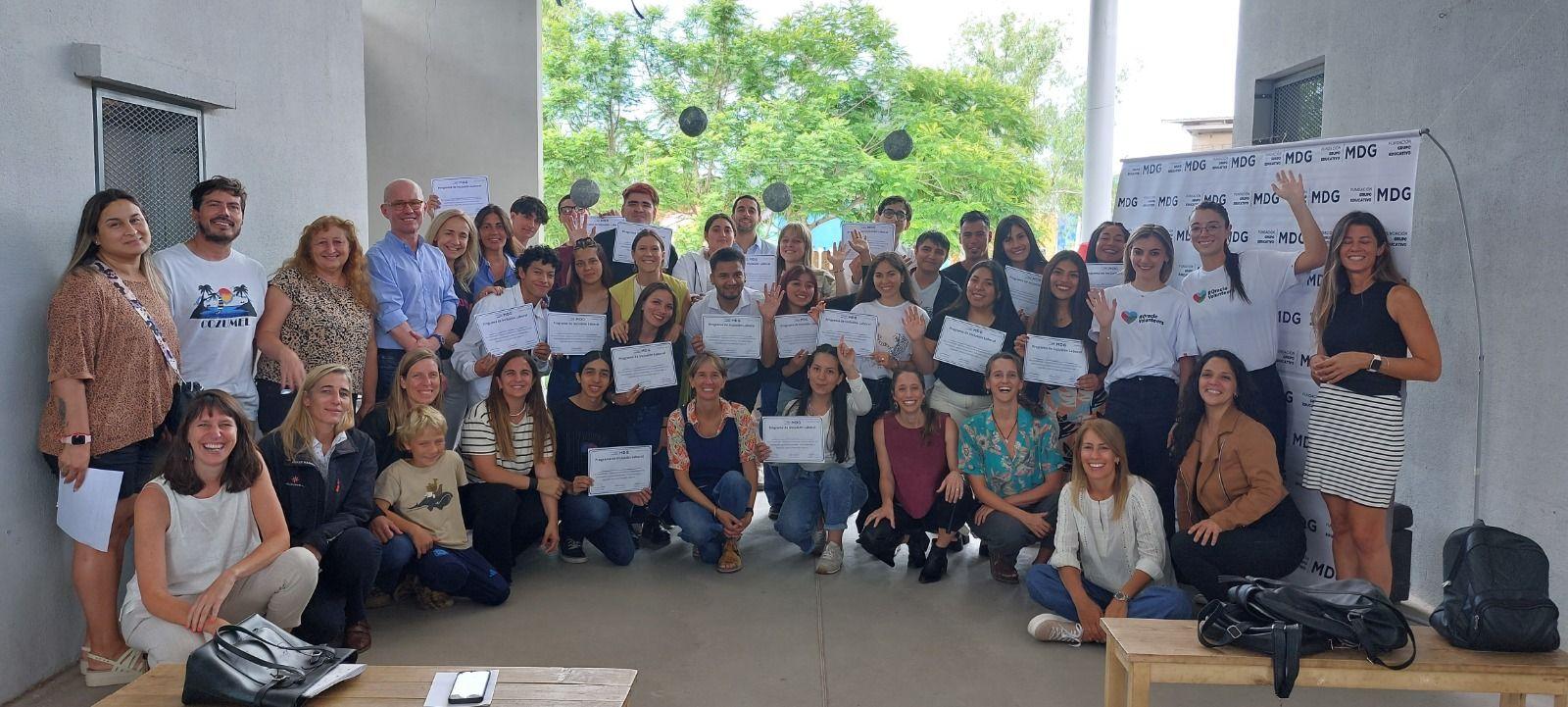
“We made a socio-environmental interview to each new family to identify serious problems,” says Arocha.
“We try to coordinate a lot with the municipality and with other NGOs that are dedicated to solving certain problems, such as housing.”
“Anyway, knowing that half of our families have overcrowding problems, and the children do not have adequate space to do homework, we try to make the learning process happen especially here at school,” he says.
School dropout
In a country where, according to a study by the Argentinos por la Educación observatory only 13 out of every 100 students graduate of secondary school within the corresponding period, María de Guadalupe has a surprising performance.
There, 99% of the students finish school, and more than 95% do so on time.
“For this, the key is personalized accompaniment. We work a lot with each family and with each child. Knowing each story, the backpack that each one brings and without judging,” says Arocha.
In secondary school, when the problem of school dropouts worsens (according to the observatory, about 15% of children drop out), María de Guadalupe students have one tutor per year, who helps them with the challenges of adolescence.
The school manages to carry out this difficult task of containment despite the fact that the Investment per student is similar to that of state-run schools. How do they achieve it? We asked the manager.
“In these schools that work with very vulnerable populations there are always problems, but you can be a firefighter and never finish putting out the fires. Therefore, our work is systematic and with preventive approach”, he points out.
“From the socio-environmental interview we conducted, we can know what topics we are going to work on with each family.”
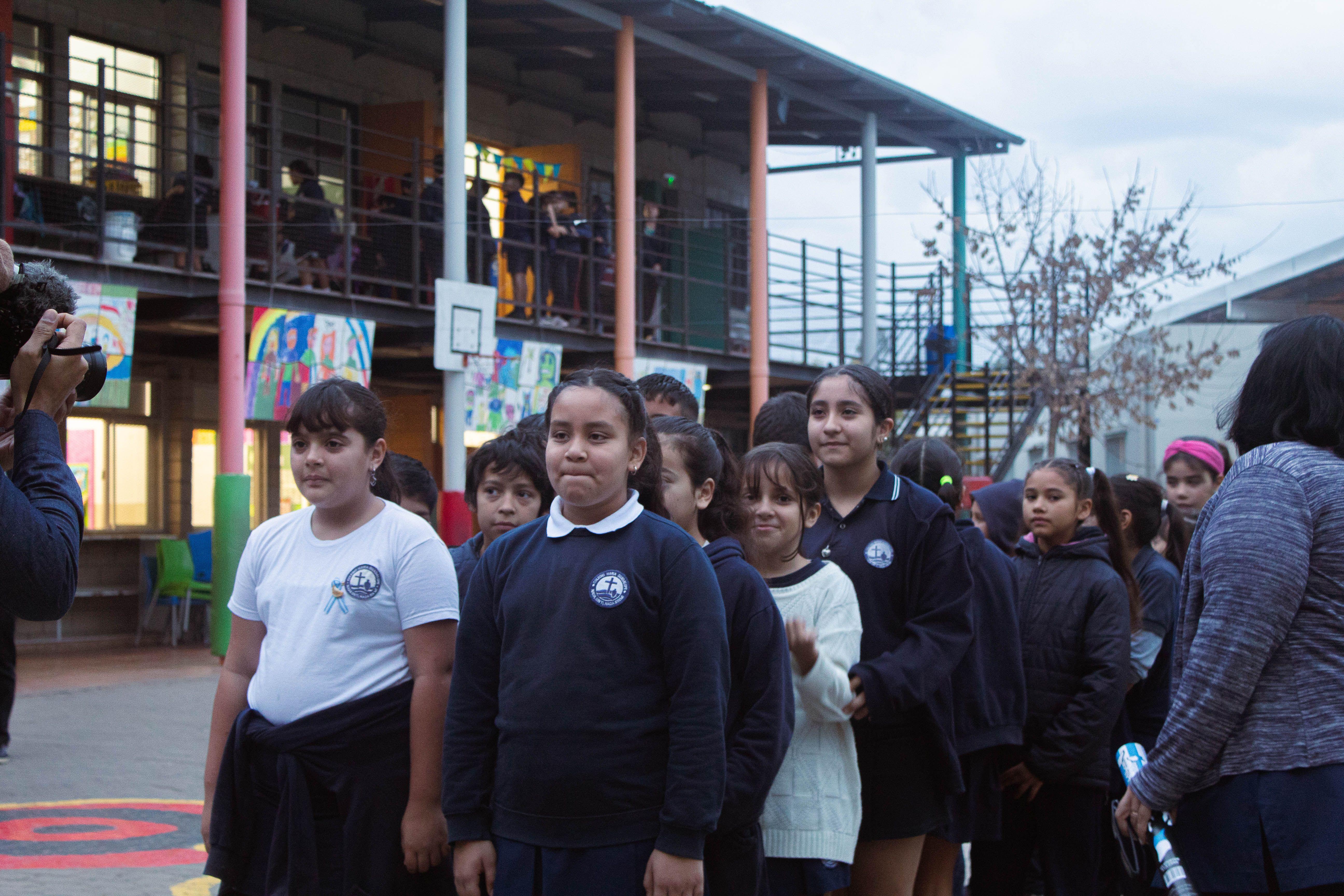
Future
Another of the successes of María de Guadalupe that the jury of the World’s Best School Prizes is the enormous number of graduates that they pursue university degrees or find employment after graduating.
According to data collected by the school, almost 5 out of 10 of its alumni continue with higher or university studies, which doubles the national average for this social group, according to Argentinos por la Educación.
Meanwhile, 87% work or study, a percentage that also exceeds the national average (75%).
This is due, in part, to the fact that the majority of María de Guadalupe students leave school having learned basic knowledge, something that – sadly – does not happen in many Argentine schools.
According to the latest Learn tests – an evaluation of sixth grade students from all over the country – Half of the children do not understand Mathematics and a third cannot understand what they read.
In contrast, 70% of the sixth-grade boys at María de Guadalupe passed the Mathematics test and 69% the Language test, in 2021 (the latest data available).
But the school gives them other tools that facilitate insertion whether university or work after graduating.
“It’s what makes us most proud”says Arocha, who knows well the few opportunities that children from humble origins usually have to have a profession.
“It has to do with very strong work throughout the entire school career in what we call core knowledge: Mathematics, Language, digital curriculum and socio-emotional skills.”
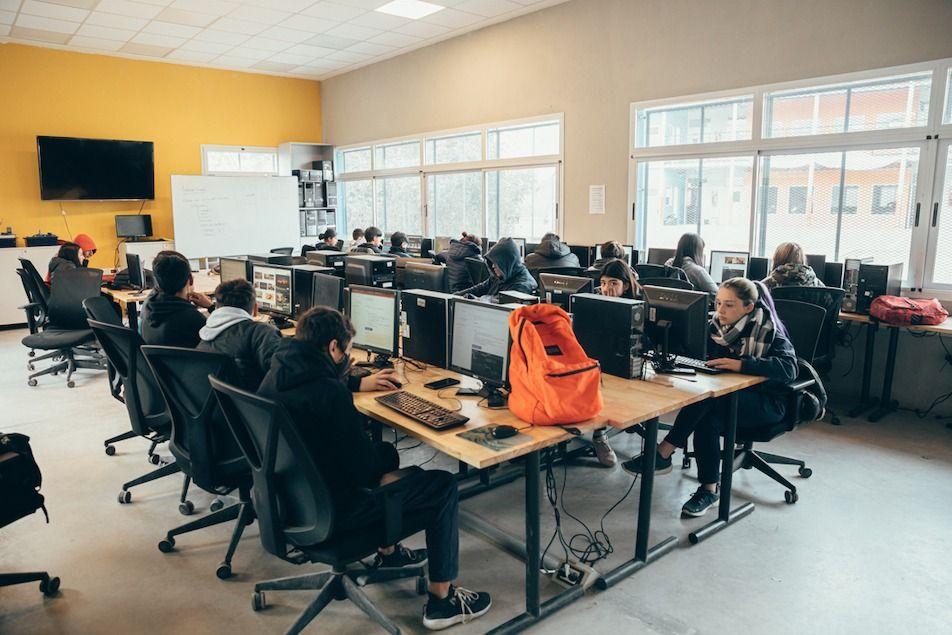
In secondary school the school offers vocational guidance, mentoring and labor inclusion programs. In addition, they allow kids to specialize in four areas: programming, audiovisual production, administration or environment.
“The majority of our graduates enter the area of study of careers linked to technology and many end up studying at the National Technological University (UTN) which is close to us,” he says, pleased.
He also reveals that the school plans to use the US$10,000 prize to invest in new computers.
The success of the school is not only seen in the performance of those who graduate there, but also in the large number of people who want to enter the institution.
“For every student who enters a room of 4, there are six left out”, laments the director.
However, he is excited that, in the future, there will be more schools like this.
In fact, he says that the María de Guadalupe Foundation (MDG) was created with the idea of replicating that first school, and has already opened a second one, the Rosario Vera Peñaloza school in Garín, another very needy area of Buenos Aires.

Subscribe here to our new newsletter to receive a selection of our best content of the week every Friday.
And remember that you can receive notifications in our app. Download the latest version and activate them.
